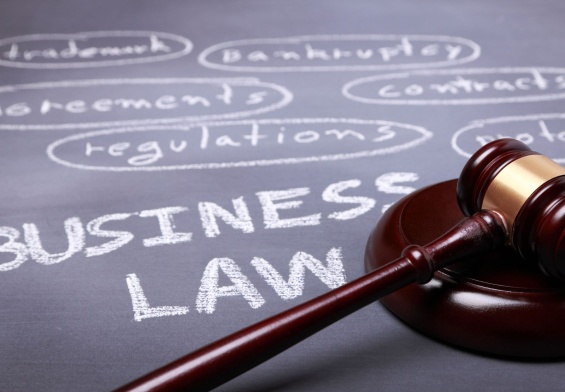Congratulations! You’ve won a lawsuit, and that’s a major victory. A judgment was awarded to you, but enforcing that judgment is a different beast entirely. If the losing party doesn’t voluntarily pay, you’ll need to take extra legal steps to enforce the judgment.
This blog explains what happens after you win a lawsuit, including how to enforce a judgment, when interest starts accruing, and what your rights are under federal and New Jersey law.
What Does It Mean to Win a Lawsuit?
Winning a lawsuit means the court has ruled in your favor and entered a judgment. That’s a formal, enforceable decision that outlines what the losing party (the debtor) owes you. Usually, that relief comes in the form of money or property. But even after judgment, enforcement doesn’t happen automatically.
Under Federal Rule of Civil Procedure 58, a judgment must be entered in writing and included in the court’s civil docket. In most cases, the judgment is documented as a separate legal order. When the judgment is entered, post-judgment procedures kick in.
When Is the Judgment Officially Entered?
A judgment is officially “entered” when it’s recorded in the court’s civil docket.
If a separate document is required, it must be entered in both the docket and that document.
If no separate document is filed, it’s presumed to be entered after 150 days.
Entry is what starts the clock on enforcement efforts, appeals, and post-trial motions.
Is There an Automatic Waiting Period After Judgment?
Yes. Rule 62(a) provides for a 30-day automatic stay of enforcement following the entry of judgment. This gives the losing party time to file post-trial motions or start an appeal.
You can’t start garnishing wages or seizing property during this period. But, sometimes the court shortens this stay for urgent reasons, like perishable assets.
This extra waiting period gives both parties time to think about their next steps, or settling.
Steps to Enforce a Judgment
If the debtor does not voluntarily comply, enforcing the judgment is the next step. Under Rule 69(a), a money judgment is enforced by obtaining a writ of execution. That allows law enforcement or the court to seize assets to settle the debt.
Step 1: Wait for the automatic stay to expire
Wait until the 30-day automatic stay period has ended before proceeding with enforcement.
Step 2: Get a writ of execution
File the appropriate paperwork with the court to get a writ of execution under Rule 69(a).
Step 3: Choose your enforcement method
Choose the most appropriate collection method based on what you know about the debtor:
- Wage garnishment
- Bank levies
- Property liens
- Sheriff’s sale
Step 4: Conduct asset discovery if needed
If you don’t know where the debtor’s assets are, use discovery tools to locate them.
Step 5: Submit paperwork to the proper authorities
Provide the writ of execution to the sheriff or other appropriate officials in the jurisdiction where assets are located.
Step 6: Track the enforcement process
Stay engaged with the process and address any objections or exemptions claimed by the debtor.
Step 7: Document all payments received
Keep proper records of all amounts collected toward satisfying the judgment.
Common enforcement options include:
- Wage garnishment: A part of the debtor’s paycheck is withheld and redirected to you.
- Bank levies: Funds are frozen and withdrawn directly from the debtor’s bank accounts.
- Property liens: A lien is placed on real estate or personal property. It becomes much more difficult for the debtor to sell or refinance without paying you first.
- Sheriff’s sale: The court can order non-exempt assets to be sold at auction to please the judgment.
These enforcement tools must follow the procedure of the state where the execution occurs. In New Jersey, for example, a creditor must first get a writ of execution through the local county sheriff before seizing property.
Does the Judgment Accrue Interest?
Yes. Under 28 U.S.C. § 1961, interest begins to accrue from the date the judgment is entered in federal court. The interest rate is based on the one-year Treasury yield from the week preceding the judgment.
- Interest is calculated daily and compounded annually.
- It continues to accrue until full payment is made.
- This interest can significantly increase the judgment amount, especially in prolonged enforcement cases.
This pushes debtors to pay quickly and compensates creditors for waiting.
What If the Defendant Files an Appeal?
An appeal doesn’t automatically block enforcement. To halt collection efforts, the losing party must get a stay pending appeal, typically by posting a supersedeas bond under Rule 62(b).
The bond acts as insurance, making sure that money will be available if the appeal is unsuccessful.
Courts may also impose injunctions or change enforcement terms during the appeal under Rule 62(d).
Important: If no bond or court-ordered stay is in place, the judgment can be enforced even while the appeal is ongoing.
Can You Use Discovery to Locate Assets?
Yes. Enforcement often requires searching for assets that aren’t immediately visible. Under Rule 69(a)(2), judgment creditors can conduct post-judgment discovery. This includes:
- Interrogatories and depositions of the debtor
- Subpoenas to banks, employers, or third parties
- Requests for production of documents, such as tax returns or financial statements
This information helps determine whether the debtor has wages, accounts, or property you can collect from.
What If the Debtor Doesn’t Have Enough Assets?
A lack of immediate funds doesn’t mean your judgment is worthless. You may record a judgment lien against any property the debtor owns. If they try to sell or refinance, they can’t without resolving their debt to you first.
In New Jersey, judgments are enforceable for 20 years, and they can be renewed.
Over time, the debtor’s financial situation may change. They can get future income, inheritances, or acquire new assets.
How Long Does Enforcement Take?
The timeline for enforcing a judgment depends on several factors:
- Whether the debtor voluntarily complies
- How quickly you locate assets
- Whether more court hearings are needed
- The volume of requests in the sheriff’s office or court system
In some cases, enforcement can take just a few weeks. In others, it may stretch into months or even years.
Do Federal and State Laws Conflict?
Rarely. Rule 69 requires federal courts to follow the procedures of the state where enforcement is sought, unless a federal statute provides otherwise.
This hybrid approach keeps practices consistent with local laws, but preserves federal authority when needed.
In New Jersey, for instance, post-judgment enforcement is guided by local court rules that set timelines for issuing writs of execution, garnishment procedures, and discovery methods.
How Can a Lawyer Help With Enforcing a Judgment?
Judgment enforcement is often more complex than the lawsuit itself. A skilled business litigation attorney can:
- Start garnishment or levies quickly
- Conduct aggressive asset discovery
- Check compliance with court orders
- Renew expiring judgments
- Defend against debtor appeals or bankruptcy tactics
Without legal help, many creditors fail to recover the full amount of their judgment.
Enforcing Judgment FAQs
Do I need a new court case to enforce the judgment?
No. Enforcement actions are part of the same case. But, some actions, like fraud claims or contempt proceedings, may take extra motions or hearings.
Can interest add up to more than the original judgment?
Yes. In long enforcement cases, accrued interest can significantly increase what’s owed.
What if the debtor transferred assets to someone else?
A court can reverse fraudulent transfers if the debtor moved property to avoid paying you. Your attorney can file a motion to recover those assets.
Is enforcement guaranteed to work?
Not always. Some debtors are judgment-proof or file for bankruptcy. But even in those cases, recording a lien or renewing your judgment can protect your rights long-term.
What Should You Do After Winning a Lawsuit?
Winning in court is only half the battle. To actually collect what you’re owed, you’ll need to enforce the judgment using various legal tools. Examples include writs of execution, discovery, garnishment, and interest recovery. The process can be slow, but with legal support and persistence, you can eventually receive what you’re owed.
If you’re trying to enforce a judgment and aren’t sure where to begin, contact a business litigation attorney with experience in post-judgment recovery.
Resources:
https://www.cit.uscourts.gov/sites/cit/files/Rule%2062.pdf




